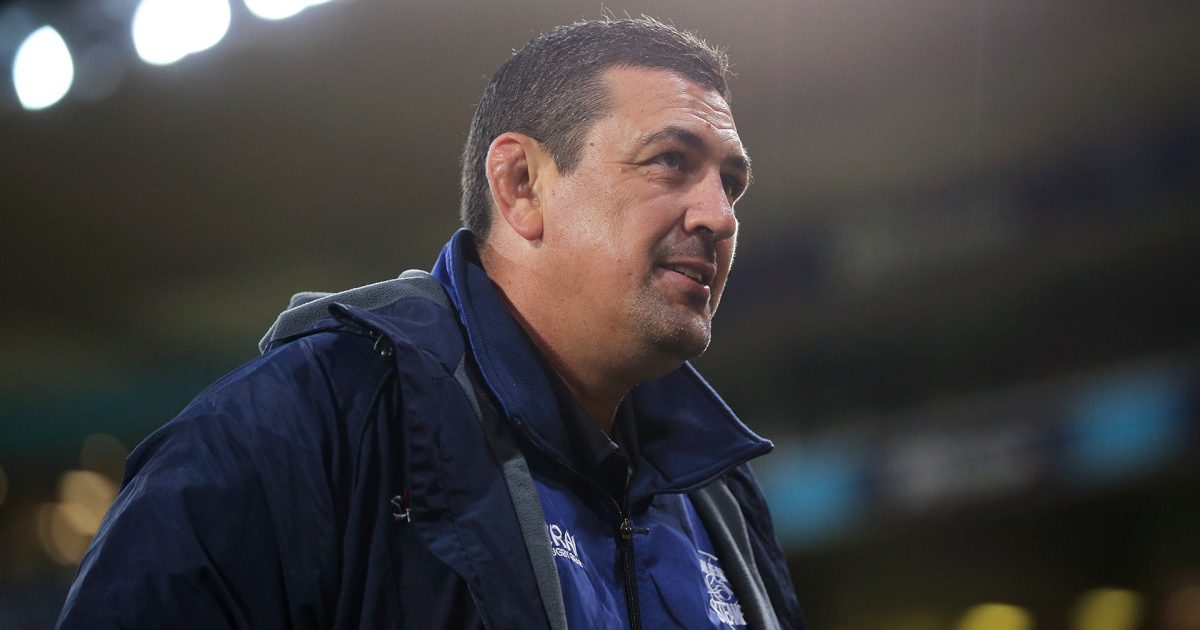Chiefs boss Clayton McMillan reveals the two key areas they need to improve on to snap losing streak

Chiefs head coach Clayton McMillan has taken aim at his side’s lack of composure and poor individual tackling in the wake of his side’s 39-23 defeat to the Highlanders in Hamilton on Friday.
The loss means the Chiefs have played 10 matches without picking up a victory, with their last win coming exactly one year ago to the day when they thumped the Waratahs 51-14 in Wollongong.
Heading into next week’s daunting clash against the Crusaders in Christchurch, the Chiefs run the risk of equaling the worst losing run of any New Zealand franchise, set by the Highlanders when they lost 11 straight between 2012 and 2013.
In order to avoid that unwanted record, McMillan said the Chiefs need to front up defensively and play with more clarity, two aspects of their game that was missing from their defeat, which came after they led the Highlanders 20-6 after 30 minutes.
“[There were] individual missed tackles they obviously exploited,” McMillan said in the post-match press conference.
“I would go back to ‘how did they get those opportunities?’
“We got a bit frantic at times when we just needed that composure. If we were able to get that, we might have been sitting here talking [about] a different story.”
Among those to have fallen off tackles included numerous All Blacks, three of whom – Sam Cane, Tupou Vaa’i and Brad Weber – all failed to bring down man-of-the-match Jona Nareki in the lead-up to Shannon Frizell’s try.
Nareki constantly threatened the Chiefs throughout the encounter as he scored a hat-trick of tries and wreaked havoc with ball in hand.
In the build-up to his second try, he slipped out of Anton Lienert-Brown’s tackle attempt as he rushed out of the line to shut the wing down, while Folau Fakatava stepped past the defensive efforts of Weber and Samipeni Finau to score his try.
If the Chiefs are to have any chance of snapping their winless streak against the Crusaders, those defensive errors that lead to game-changing scores will need to be eradicated.
Cane suggested his teammates didn’t step up take the lead going into the second half they fell victim to Nareki’s attacking exploits and threw away their comfortable advantage.
https://twitter.com/RugbyPass/status/1368003727529889796
“We came out in that second half and were 10 per cent off, waiting for one another to make the first step,” the Chiefs captain said.
“The Highlanders were the opposite and really took it to us.”
Nevertheless, captain Cane he was looking forward to the challenge of taking on reigning Super Rugby Aotearoa champions, who will play the Hurricanes in Christchurch on Sunday.
“Personally, it always excites me going down there to play them,” he said.
“They’re extremely tough to roll, but it’s the tough games that are the most satisfying.”
Super Rugby Aotearoa is available to watch live and on-demand on RugbyPass for subscribers in the UK, Ireland, France, Singapore and many more territories across the world who hold a tournament pass.
































